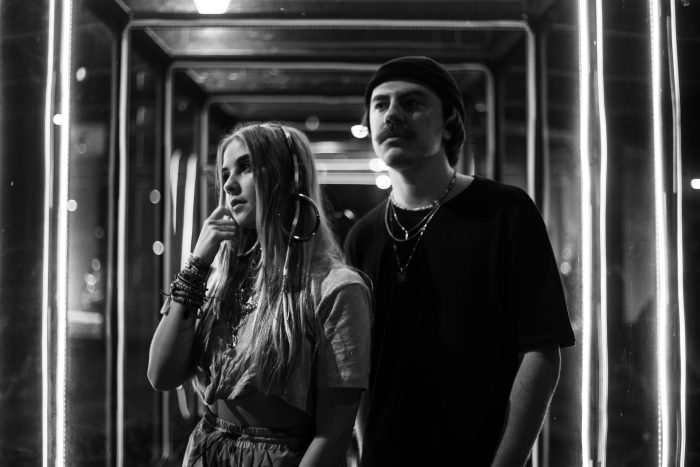It all came to this—the past four years culminating in this one moment.
Me kneeling on the edge of the double bed in a tiny hotel room, my face damp with tears. My partner and I, hours into an old argument about trust and betrayal, truth and lies, authenticity and addiction—resolution nowhere in sight.
I was in full swing of a fight, flight, or freeze reaction. My consciousness was somewhere on a nearby trail taking a hike, leaving my inner child fighting a battle she had no business fighting.
“Please don’t leave me,” I heard her whimper after my partner announced he was going to stay in a different hotel for the night. My insides trembled like poplar leaves, and my voice sounded young and terrified. The possibility of abandonment hijacked all rational thought. “Please stay. I don’t feel safe,” my little girl begged. In that moment, I truly believed I wasn’t safe. I thought I would die if he left my inner child in that shoebox of a room.
He decided to stay. We lay next to one another in the double bed, inside the tiny room, with what felt like oceans of disconnect between us.
When morning came after a sleepless night, I entered the slow and uncomfortable acceptance that this relationship to which I had devoted the last four years of my life, this man whom I loved, was actually preventing me from fully healing. I knew that I would need solitude and reflection time to untangle the painful experience and consider whether I loved myself, valued myself, and mattered enough to myself to leave.
It took me four days of focused reflection and processing to return to blessed consciousness. Glimpses of truth began to gather and for the first time, I faced the power of my denial that had kept me in the land of perpetual hope.
As a writer and a curious human being, I wanted to understand why I found it nearly impossible to leave this relationship. I had tried three times, only to return in hopes that all would be well—convinced that all that was needed was a concerted effort to work on ourselves within the relationship arena. I saw us as the power couple who overcame the impossible.
The term trauma bond was coined by Patrick Carnes, PhD, the founder of the International Institute for Trauma and Addiction Professionals. He describes it as the misuse of fear, excitement, and sexual feelings used to entangle another person.
No! I did not want to believe that this was the case in my four-year-long relationship, but how else could I explain that what I was experiencing was symptoms consistent with a trauma bond. It was time to remove my blindfold and face reality.
Trauma bonding does not happen out of the blue. Often, our brains and bodies were primed in childhood. We may have hailed from families where addiction and dysfunction were a daily reality. Our systems already experienced the magical cocktail of dopamine, cortisol, oxytocin, and adrenalin. We were coded for relationship addiction.
When in adulthood similarly felt relationships activate our nervous and endocrine systems, we are once again flooded with the familiar stress and feel-good hormones that open the doors to another trauma bond.
This article is in no way meant to blame my ex-partner. I wrote it to better understand my actions and inability to put a permanent end to the relationship and also to support those who believe they are alone in their suffering.
My journals are bursting with musings about why this relationship “hurt so good,” to quote John Mellencamp. Because of the strong trauma bond and the addiction to the cortisol and dopamine, I was not able to maintain my resolve to stay away after leaving. The feelings were terrifying and debilitating. I experienced chronic anxiety and feared I would not survive without this person. I returned to the relationship having convinced myself that because my emotional reactions to leaving were so intense, it must be true love.
The truth is they were symptoms of the trauma bond formed in childhood.
When back in the relationship and the cycle of feel good/feel bad would wind up again, I justified my partner’s behaviour to myself and to others. I would sooner blame myself for everything and therefore take on the responsibility of fixing myself, rather than bring up topics that would likely result in stonewalling and gaslighting. I convinced myself that if I took on the responsibility of why we were not connecting or disfigure my values to make them more like his, all would be well.
There were times when I had the odd, familiar feeling that I have been here before, but couldn’t articulate it. Reflecting back, the alcohol addiction in my family was a blueprint for the disconnect I felt in my relationship with my partner. The emotional rollercoaster of intimacy and withdrawal, of connection and abandonment led to dissonance within myself.
According to Freud, humans seek comfort in the familiar. He called this behaviour repetition compulsion. My partner and I argued compulsively about the same topics: indiscretions, secrets, betrayal, and trust. After the arguments died down, I’d walk away feeling that although I had made my boundaries clear, I did not feel heard or understood.
I remained caught in a cycle of hope, addressing the same problems on repeat in hopes for a new outcome. The definition of insanity.
I justified certain behaviors, knowing they felt off. The jokes that felt sharp and hurtful were explained by him as his unique sense of humor that not too many people appreciate. I believed him and started to tell myself that I was oversensitive and needed to grow thicker skin. After a while, I grew numb to the remarks.
Throughout the relationship and its many hotspots, I learned that as long as my feelings were about someone or something else and not about my partner having done something that I was hurt by or disagreed with, I was free to share them. When I took the risk and expressed concern about incongruencies in his words and actions, or about something he had done that could be interpreted as critical of him, I’d open the door to anger, stonewalling, and emotional disconnect.
Eventually, instead of holding firm to my needs and honoring my feelings, I’d capitulate. I’d double down and work even harder at being a loving and all-accepting partner.
The truth is the relationship became more important than my values and principles.
With each return, I’d experience relief along with disappointment. Relief that I did not have to feel those debilitating feelings of doubt, grief, and missing, and disappointment that I had returned to the merry-go-round of relationship addiction and codependency.
Bottom line, I was terrified of what lay beyond the leaving—paralyzed by the thoughts of living my life without my partner. My disassociated psyche convinced me that I would not survive being alone and would wither away, sexless and powerless into a little doddery, old woman. (A clear sign of a trauma bond.)
On the fourth evening after returning home from the hotel, I made the decision to leave the relationship. I showed up in my courage. I finally admitted that I was powerless over others and that my life had become unmanageable (Step 1 of Codependents Anonymous). I was no longer willing to put the relationship first in my life. I celebrated that I had done everything possible to make it work. I accepted my partner in his completeness and then let him go.
It hasn’t been easy. I’ve wobbled. I went back on my no-contact decision and reached out to him when the pain got too unbearable. To his credit, he has met me with kindness and respect. We have not reunited and have accepted that our healing must take place outside of relationship. We have surrendered our wills.
I have strengthened my no-contact resolve. I’ve returned to my therapist and increased the frequency of my Codependents Anonymous meetings. I’m establishing new friendships and daring to move out from the grip of isolation and shame and into inclusion and support.
Dr. Carl Jung wrote, “Until you make the unconscious conscious, it will direct your life and you will call it fate.”
In many ways, I operated in my relationship unconsciously. I dipped into childhood trauma of abandonment and betrayal and reacted from a place of powerlessness and helplessness.
I continue to miss my ex-partner and remind myself that I am normal and my feelings are human. There were good and loving times that I recall with fondness.
I let the tears flow when my body tells me it’s time to shed another layer.
I also know the truth of trauma bonding that feels a little like hugging a porcupine. Today, I am no longer in denial of her quills. I lovingly and patiently heal each puncture wound left behind.
~









Read 12 comments and reply